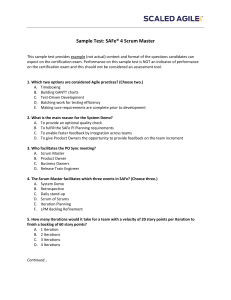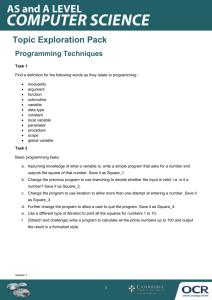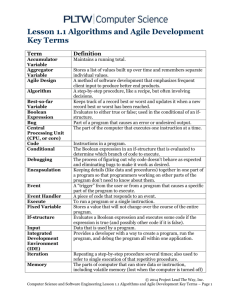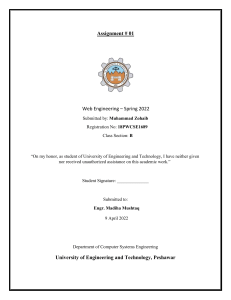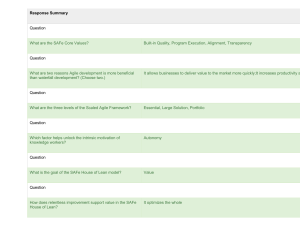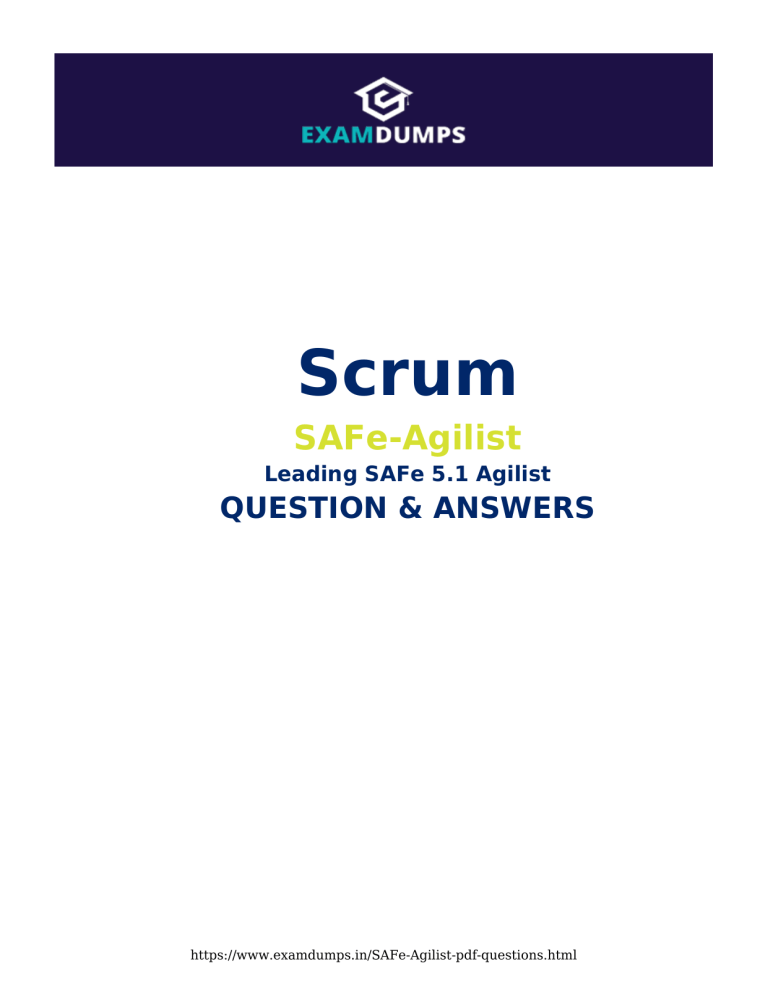
Scrum SAFe-Agilist Leading SAFe 5.1 Agilist QUESTION & ANSWERS https://www.examdumps.in/SAFe-Agilist-pdf-questions.html QUESTION 1 Who defines the final scope of the Iteration to commit ? A. B. C. D. The Scrum Master The Agile Team The Solution Manager The Product Owner Correct Answer: B QUESTION 2 Continue the sentence :"Strategic Themes ...." A. B. C. D. Define the sequence of steps used to deliver value to the customer Connect the portfolio to the enterprise business strategy Determine the order in which Epics should be executed Drive incremental implementation across the enterprise Correct Answer: B QUESTION 3 Who is facilitating the Scrum of Scrums ? A. B. C. D. Business Owners Scrum Master Product Owner Release Train Engineer Correct Answer: D QUESTION 4 What is one way Lean-Agile leaders lead by example? A. By modeling SAFe’s Lean-Agile Mindset, values, principles, and practices B. By mastering the Seven Core Competencies of the Lean Enterprise C. By applying empathic design and focusing on Customer Centricity https://www.examdumps.in/SAFe-Agilist-pdf-questions.html D. By using the SAFe Implementation Roadmap to script the way for change Correct Answer: A QUESTION 5 Design Thinking goes beyond the traditional focus on the features and functions of a proposed product and emphasizes understanding the problem to be solved. A. TRUE B. FALSE Correct Answer: A Explanation/Reference: The statement is true, Design Thinking goes beyond the traditional focus on the features and functions of a proposed product and emphasizes understanding the problem to be solved. QUESTION 6 When does the Plan-Do-Check-Adjust cycle occur in Scrum? A. B. C. D. In the daily Scrum At the Iteration Review At all formal Scrum events As part of the Iteration Retrospective Correct Answer: B Explanation/Reference: Plan –Iteration Planning is the plan ste Do – Iteration Execution is the do step Check – Iteration Review is the check step Adjust – Iteration Retrospective is the adjust step https://www.examdumps.in/SAFe-Agilist-pdf-questions.html Reference: https://www.scaledagileframework.com/iterations/ QUESTION 7 Which of the below is not one of the four activities of Release On Demand? A. B. C. D. Learn Stabilize and operate Automate Measure Correct Answer: C Explanation/Reference: The 4 activities of Releae On Demand are Release, Stabilize and operate, Measure and Learn. QUESTION 8 Which two statements describe a Capability? (Choose two.) A. It is maintained in the Portfolio Backlog B. It must be structured to fit within a single PI C. It is written using a phrase, benefit hypothesis, and acceptance criteria https://www.examdumps.in/SAFe-Agilist-pdf-questions.html D. It remains complete and becomes a Feature for implementation E. It is developed and approved without a dependence on the Solution Kanban Correct Answer: B,C QUESTION 9 Which statement is true about a Value Stream that successfully uses Devops? A. B. C. D. It has a technology stack without legacy code It has objective measurements with automation It has a closed loop process of learning It has a lower threshold of defects approved to production Correct Answer: C QUESTION 10 Optimizing flow means identifying what? A. B. C. D. Key performance indicators Delays Predictability issues of the train Activities that lack innovation Correct Answer: B QUESTION 11 How many Iterations would it take for a team with a velocity of 20 story points per Iteration to finish a backlog of 60 story points? A. B. C. D. 1 Iteration 2 Iterations 3 Iterations 4 Iterations https://www.examdumps.in/SAFe-Agilist-pdf-questions.html Correct Answer: C Explanation/Reference: If the total amount of work had been estimated on 100 story points, then, with the average velocity of 20 points, it would take 5 iterations to complete the project. If the total amount of work had been estimated on 60 story points, then, with the average velocity of 20 points, it would take 3 iterations to complete the project. Reference https://www.scaledagile.com/wp-content/uploads/2018/11/SSM4_Sample.pdf QUESTION 12 In which backlog can we find user stories ? A. B. C. D. The System Backlog The Team Backlog The Product Backlog The Program Backlog Correct Answer: B QUESTION 13 What does the Product Owner do as part of the prep work for iteration planning? A. B. C. D. They collaborate with their team to detail stories with acceptance criteria and acceptance tests. They review and reprioritize the backlog. They elaborate backlogs into user stories for implementation. They build, edit, and maintain the team backlog. Correct Answer: B QUESTION 14 Select the pillars of House of Lean : A. B. C. D. Flow Relentless Improvement Cost and budget Value and Lean-Agile leadership https://www.examdumps.in/SAFe-Agilist-pdf-questions.html E. Respect for people and culture F. Innovation Correct Answer: A,B,E,F Explanation/Reference: Value and Lean-Agile Leadership are in the House of Lean but are not pillars. Cost and Budget are not in House of Lean. QUESTION 15 The Agile Release Train uses which type of teams to get work done? A. B. C. D. Solution teams Phased-review-process teams Management teams Cross-functional teams Correct Answer: D QUESTION 16 What is the highest hierarchy level of requirements in SAFe? A. B. C. D. Epic Feature User Story Capability Correct Answer: A Explanation/Reference: Epics are the highest level of requirements in the hierarchy of requirements Then are Capabilities, Features and User Stories. https://www.examdumps.in/SAFe-Agilist-pdf-questions.html QUESTION 17 How many dimensions does the Agile Product Delivery competency have? A. B. C. D. three four five seven Correct Answer: A Explanation/Reference: There are 3 dimensions of the Agile Product Delivery competency - these are Customer Centricity and Design Thinking, Develop on Cadence, Release on Demand and DevOps and Continuous Delivery Pipeline. QUESTION 18 The Scrum Master is what above all else? A. B. C. D. A Servant Leader A team coach A SAFe Agilist An empathetic leader Correct Answer: A QUESTION 19 Which of the below is not a pillar of the SAFe House of Lean? A. B. C. D. Value Innovation Relentless Improvement Flow Correct Answer: A https://www.examdumps.in/SAFe-Agilist-pdf-questions.html Explanation/Reference: The SAFe House of Lean has Lean-Agile Leadership at the base, Value at the top and 4 pillars which are Respect for people and culture, Flow, Innovation and Relentless Improvement. QUESTION 20 Which of the below is not a characteristic of generative culture? A. B. C. D. low cooperation innovation implemented collaboration encouraged responsibilities shared Correct Answer: A Explanation/Reference: Generative culture is characterized with high cooperation. QUESTION 21 Product Management has content authority over the Program Backlog. What do Product Owners have content authority over? A. B. C. D. Value Streams Portfolio Backlog Portfolio Vision Team Backlog Correct Answer: D QUESTION 22 How many teams typically form one Agile Release Train? A. B. C. D. 3-4 teams 5-12 teams 10-15 teams 20-25 teams https://www.examdumps.in/SAFe-Agilist-pdf-questions.html Correct Answer: B Explanation/Reference: SAFe recommend that one Agile Release Train (ART) consists of to 12 Agile teams. QUESTION 23 How is supported Customer centricity ? A. B. C. D. Market research Whole product development User research Design thinking Correct Answer: D QUESTION 24 The accelerate step of the Implementation Roadmap is the beginning of another journey that is based on a foundation of what? A. B. C. D. Relentless Improvement Agile Product Delivery Customer Centricity Continuous Delivery Correct Answer: A QUESTION 25 Why do Business Owners assign business value to team PI Objectives? A. B. C. D. To determine the highest value using WSJF To ensure the teams do not work on architectural Enablers To provide guidance on the business value of the team objectives To override the decisions made in WSJF prioritization https://www.examdumps.in/SAFe-Agilist-pdf-questions.html Correct Answer: C QUESTION 26 What is one component of the Continuous Delivery Pipeline? A. B. C. D. Continuous Exploration Continuous Improvement Continuous Planning Continuous Cadence Correct Answer: A QUESTION 27 Select the three events facilitated by The Scrum Master. A. B. C. D. E. F. Scrum of Scrums Retrospective Iteration Planning System Demo Daily stand-up Portfolio Sync Correct Answer: B,C,E QUESTION 28 Who is responsable of Capabilities? A. B. C. D. E. Solution Architect/Engineer Value Stream Engineer Product Manager Solution Manager Release Train Engineer Correct Answer: D https://www.examdumps.in/SAFe-Agilist-pdf-questions.html Explanation/Reference: Solution Management The Solution management is the one responsible for refining and prioritizing capabilities, as per Solution Increment Definition of Done Solution Management accepts the capabilities after Solution Demo. QUESTION 29 Why the Development Team has been removed since SAFe 5.0. ? A. B. C. D. To simplify the SAFe big picture To provide more focus to Product Owners and Scrum Masters To shift focus from team agility to organizational agility To better relate to business teams Correct Answer: D QUESTION 30 Which of the below are Core Competencies for Business Agility? (Choose Two) Multiple Selection A. B. C. D. Lean Portfolio Management Continuous Integration Continuous Learning Culture Agile Product Delivery Correct Answer: A,C Explanation/Reference: There are 7 core competencies of Business Agility. These are: Lean Portfolio Management, Organizational Agility, Continuous Learning Culture, Lean-Agile Leadership, Team and Technical Agility, Agile Product Delivery and Enterprise Solution Delivery. QUESTION 31 In SAFe Built-in Quality thinking is organized around five specific aspects—Flow, Architecture and Design Quality, Code Quality, System Quality. A. B. C. D. Release Quality Deployment Quality Performance Quality Software Quality https://www.examdumps.in/SAFe-Agilist-pdf-questions.html Correct Answer: A Explanation/Reference: The 5th aspect of Build-In Quality is Release Quality. QUESTION 32 What do Work in Process (WIP) constraints create? A. B. C. D. Enhanced product ROI Forced capacity matching Better customer outcomes Increased pressure to deliver Correct Answer: B Explanation/Reference: Work in Process (WIP) constraints create Forced capacity matching. QUESTION 33 When should new approaches be anchored in an organization’s culture? A. B. C. D. Culture should not be changed because SAFe respects current culture Culture change needs to happen before the SAFe implementation can begin Culture change comes last as a result of changing work habits Culture change comes right after a sense of urgency is created in the organization Correct Answer: C QUESTION 34 What is the goal of psychological safety? A. B. C. D. To create an environment for responsible risk-taking To ensure that everyone is trained in the values, principles, and practices of Lean and Agile To positively influence and motivate others to engage in the organizational change To communicate why change is needed https://www.examdumps.in/SAFe-Agilist-pdf-questions.html Correct Answer: A QUESTION 35 Who commits to the plan at the end of Iteration Planning? A. B. C. D. The Solution Owner The Team The Product Owner The Scrum Master Correct Answer: B Explanation/Reference: At the end of planning, the teams commit to the goals of the iteration and adjust stories as necessary to achieve the larger purpose. In return, management does not interfere or adjust the scope of the iteration, allowing the team to stay focused. Reference: https://www.scaledagileframework.com/iteration-planning/ QUESTION 36 What are two critical areas that differentiate Agile from waterfall development? (Choose two.) Multiple Selection A. B. C. D. E. Architectural Runway Staggered integration Incremental delivery of value Face-to-face interaction Fast feedback Correct Answer: C,E Explanation/Reference: Identifies the practices of limiting work in process (WIP), reducing batch size, and managing queue lengths. These hasten value flow to the customer and enable faster feedback. Each iteration is a standard, fixed-length timebox in which Agile Teams deliver incremental value. For Agile teams, these are typically working software and hardware, while business teams will provide other aspects of value. A typical timebox duration is two weeks. However, slightly shorter or longer https://www.examdumps.in/SAFe-Agilist-pdf-questions.html timeboxes may be useful. Iterations are well structured and follow a consistent cycle of Iteration Planning, Iteration Execution (which includes a daily-stand-up and backlog refinement), Iteration Review, and an Iteration Retrospective. Reference: https://www.scaledagileframework.com/agile-product-delivery/ QUESTION 37 What is the size of an Agile team, recommended by SAFe? A. B. C. D. 3 to 9 people 5 to 11 people 7 to 10 people 10 to 15 people Correct Answer: B Explanation/Reference: SAFe advises that the optimal size for an Agile team is to 11 people. QUESTION 38 The relationship between ______________ and _______________ are the in the core of WSJF. (Choose Two) Multiple Selection A. B. C. D. E. Processing rate Cost of Delay Average wait time Job duration Queue length Correct Answer: B,D Explanation/Reference: WSJF is calculated based on the Cost of Delay divided by the Job Size. QUESTION 39 What can be used as a template for putting SAFe into practice within an organization? A. SAFe Principles https://www.examdumps.in/SAFe-Agilist-pdf-questions.html B. SAFe Core Values C. SAFe Implementation Roadmap D. SAFe House of Lean Correct Answer: C QUESTION 40 What is the name of the event where all team members determine how much of the team's backlog they can commit to delivering during an upcoming Iteration? A. B. C. D. Solution Planning Solution Demo Iteration Planning Backlog Refinement Correct Answer: C Explanation/Reference: Iteration Planning is an event where all team members determine how much of the Team Backlog they can commit to delivering during an upcoming Iteration. The team summarizes the work as a set of committed Iteration Goals. Reference: https://www.scaledagileframework.com/iteration-planning/#:~:text=Iteration Planning is an event,set of committed Iteration Goals. QUESTION 41 In SAFe, who owns the decision for releasing changes into production? A. B. C. D. Release Train Engineer Solution Owner System Architect Product Management Correct Answer: D https://www.examdumps.in/SAFe-Agilist-pdf-questions.html Explanation/Reference: It is the product management, who holds the responsibility of releasing the changes in the production. Reference: https://www.scaledagileframework.com/product-and-solution-management/ QUESTION 42 What is one example of differentiating business objectives? A. B. C. D. Portfolio Vision Solution Intent Enterprise Goals Strategic Themes Correct Answer: D https://www.examdumps.in/SAFe-Agilist-pdf-questions.html
